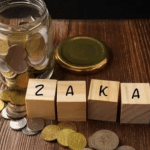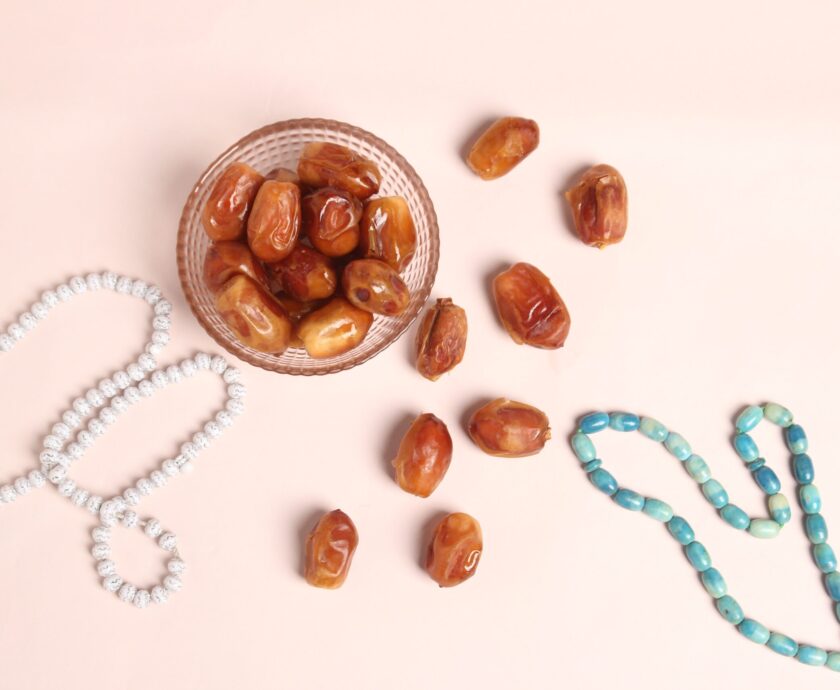Money is not just something which concerns Islam and Muslims, it is something which is a universal concern. Every human of every economy is impacted by the medium of exchange that is used in a system. Hence, the soundness of money is as important as blood is to the body; and the health of the economic system rests on sound money, just as the health of the body depends on healthy blood.
What is Money?
At its core, money is simply a social construct that allows for the exchange of goods and services. Money is a social technology composed of several features. Money is a set of ideas and practices which organise what we produce and consume, and the way we live together. Money is a code and language by which the economy is coded by. A good that assumes the role of a widely accepted medium of exchange is called money. Imam al-Ghazali (d.505 AH) states that the proper functioning of the world depends on the monetary standard. As such, having an optimal monetary standard will be of benefit to everyone.
In this article, we explore money from a Shariah lens and search for any guidance that we can unearth from Shariah sources on what sound money should look like.
- Money is only a medium of exchange
The defining feature of money in Islam is that it is nothing but a medium of exchange. It is only that and serves nothing but that. It is not a commodity to trade or rent. It is not an asset like other assets, nor a service like other services.
Imam Ibn al-Qayyim (d.751 H) states:
“Money is never sought for itself; rather, it is used as a means to gain commodities.”[1]
Imam al-Ghazali (d.505 H) states:
“Almighty Allah created the Dinar and Dirham for circulation and to be an equitable and just standard between different assets. They are the means to all other assets; they are precious in themselves but not desired for themselves.”[2]
In another place, he states:
“Money is like a mirror which reflects everything but is not reflected itself. Another wisdom behind the creation of money is to act as a medium to all other assets for exchange purposes.”
Being a medium of exchange is central to currencies. Dr Saifedean Ammous states:
“Being a medium of exchange is the quintessential function that defines money—in other words, it is a good purchased not to be consumed (a consumption good), nor to be employed in the production of other goods (an investment, or capital good), but primarily for the sake of being exchanged for other goods.”[3]
- Money is not something that should be traded like a commodity
If money is the measure to weigh the value of all other assets, it necessitates that money itself is never measured or weighed by anything else. It must be an independent scale, not something that is traded and measured like other assets.
Strategically trading currencies merely for profit opens the doors to manipulation of pricing and skewing of the unit of account. It plays around with the supply and demand dynamics of the very thing that is supposed to be an objective standard; Large individual transactions have a large impact on price, and variations in demand can cause large swings in price. If money has no benefit or utility from a Shariah perspective besides functioning as a medium of exchange, why would someone then seek to exchange a medium of exchange for another medium of exchange if there is no utility gained from such a transaction? Money is the means, and not the end. There is no gain from trading media and means among each other, as there is no beneficial and productive output.
Of course, exchanging money for exchange purposes is permitted and is needed. There was a need to exchange Dinar for Dirhams, and Dirhams for Dinar, for travel, smaller denominations, purchase of items only being sold in Dirhams etc. In the world of the fiat standard, the need for foreign exchange is all the more evident when travelling. The Shariah has given very specific guidelines on how to exchange money in a Riba-free way. Hence, exchanging different forms of money incidentally is permitted as foreign exchange, but inter-trading currencies strategically for-profit purposes only, needs to be reconsidered altogether whether it aligns with the Islamic economic philosophy.
Imam Ibn al-Qayyim (d.751 H) states:
“When money begins to be treated as a commodity and becomes the objective of transactions, the entire (economic) system will become corrupted and in crisis.”[4]
Imam al-Ghazali states:
“When money is traded for itself, then this is against the very wisdom and purpose of money. Seeking money for other than its purpose is exploitation and mistreatment of money.”[5]
- Money should not be monopolised
Money should not be monopolised, as everyone is a stakeholder in money. No one party has a greater right over it than another; and no one party enjoys a privilege to control money at their own whims. This creates an imbalance and an artificial imposition on money. The Qur’an specifically discourages monopoly positions:
“Whatever gains God has turned over to His Messenger from the inhabitants of the villages belong to God, the Messenger, kinsfolk, orphans, the needy, the traveller in need- this is so that they do not just circulate among those of you who are rich.” [Qur’an 59:7]
The role of the authorities is to protect against monopolisation and prevent private individuals meddling with the currency, and be the custodians of monetary affairs for the public welfare.
- Money needs governance
Classical scholars were very much concerned with oversight and governance of money to protect it from manipulation. As such, the authorities were seen to be the guardians and caretakers to maintain order and public welfare by being in public service. The Imam and the Islamic government were custodians and given the responsibility for the minting of new coins. Classical scholars were of the view that it was prohibited for the private sector to mint coins and issue money, as discussed by Imam Ahmed and Imam al-Nawawi (Rahimahumullah)[6]. However, this did not mean that the custodians – the government – had an unbridled licence to manipulate and distort the monetary system. The scholars emphatically state that the Shariah does not permit the Imam and the authorities to manipulate the monetary system through debasement, coin clipping and by artificially increasing the supply of money.
- Money should not be debased nor manipulated
Coin clipping and debasement is not permitted in Shari’ah for both the general populace as well as the authorities. The Shariah deems this as corruption, exploitation and economic manipulation. Imam Malik, Imam Ahmed and most of the jurists of Madinah state that it is prohibited, even when there is a supposed need or necessity to do so[7]. This is eye-opening; need and necessity permit even the prohibited matters to an extent. The famous Islamic principle states:
“Necessity permits (temporarily) the prohibited.”[8]
The Qur’an states:
“He has only prohibited for you carrion, blood, the flesh of swine and that upon which a name of someone other than ‘Allah’ has been invoked. Then, whoever is compelled by necessity, neither seeking pleasure nor transgressing, there is no sin on him. Verily, Allah is Most-Forgiving, Very-Merciful.” [Qur’an 2:173]
The commentary and the jurisprudential rulings from the above verse teach us that if one is starving and on the verge of death, there is concession to consume that which is generally prohibited, such as carrion, swine etc. However, when it comes to coin clipping and debasement, the scholars unequivocally state that coin clipping and debasement are absolutely prohibited, no matter what the circumstance and scenario. There is no state or circumstance which will permit that. No necessity or need can permit that practice. What we learn from here is that debasement can never lead to a better outcome, not the immediate term nor in the long term. Another reason why this is further prohibited is that currency manipulation has a global negative impact and harm on all those who use that currency. There can be no necessity to justify this. The harm in this is universal with no element of benefit. This also applies to the current practice of printing money continuously and the entire fractional reserve system.
Debasement, coin clipping or money printing is actually a form of consuming the wealth of others unlawfully, which is prohibited in the Qur’an. The following verse of the Qur’an follows up this prohibition with the prohibition of murder, as the former kills net worth and the latter literally eliminates life:
“You who believe, do not wrongfully consume each other’s wealth but trade by mutual consent. Do not kill each other, for God is merciful to you.” [Qur’an 4:29]
The same message as this verse was proclaimed by the Prophet (peace and blessings be upon him) in his celebrated farewell sermon in Hajj. He said:
“Verily, your lives, your property, and your honour are sanctified, just as the sanctity of this day of yours, in this month of yours.”[Sahih Muslim]
- Optimal money is hard money
From a Shari’ah perspective, anything can be a means of payment in a transaction; anything can be a ‘Thaman’ (payment) in a transaction. But the classical Fiqh books discuss how currencies other than gold and silver were not deemed to be money in the true sense; it was gold and silver that were the standard, unit of account and medium of exchange, and a true form of money[9]. It is as if the jurists and scholars were indicating to the phenomenon of hard money and easy money. They negated easy money to function as money in the long term. Other short-term currencies that were introduced were done so arguably for circumstantial reasons and to create ease for purchasing very cheap items that are less than even one Dirham, as stated by the jurists.
Gold in particular, has held its value over centuries due its hardness; and the hardness of gold is drawn from the fact that is hard to bring new units in circulation and increase in its supply without cost and effort. It is very difficult to mine large amounts of gold at any one time to depress the price significantly. This is known as the stock-to-flow ratio in economics. Gold has arguably the highest stock-to-flow ratio, and that is what made it such a strong store of value. Thus, Shariah recognises hard money as real money and a sound monetary system and standard.
- Money is a unit of account
Another feature of money that we learn from the Shari’ah is the role of money to operate as a unit of account. The scholars define money as a ‘measure’ (Miqyās), as it is the tool with which the value of everything is measured. Money is the barometer of value.
The Shari’ah prohibits ambiguity and uncertainty in transactions. Money is the technology which removes ambiguity and uncertainty by manifesting value. Money gives the counterparties a common denominator to express themselves in, thereby removing ambiguity and uncertainty. Money by its nature is there to remove uncertainty, ambiguity and friction in trade. As such, money is a unit of account.
- Money is a store of value
Preservation of wealth is from the Higher Objectives of Shari’ah (Maqasid al-Shari’ah). Wealth is preserved by having wealth that is able to store value over long term. Money is the most precious form of wealth, as it is the means to every worldly form of wealth. As such, the preservation of money is by it being a long-term store of value. Perhaps this is the very reason why gold and silver were the prevalent form of money when revelation was revealed.
Several worships and practices in Islam are tied to the value of gold and silver, the best stores of value for centuries and the hardest forms of money. The threshold (Nisab) for the obligation of Zakat, blood money payments, dower for marriage, Udhiyyaand other actions are all tied to gold and silver.
In fact, an official weight for the Islamic Dinar and Dirham was set by the Prophet ﷺ and further clarified in the time of the Khulafa Rashidun. The coins prior to the Islamic coinage came in different weights. To bring about universal standard and uniformity, the Prophet ﷺ declared that in terms of weight, the weight of the people of Makkah will be the standard. And in terms of volumetric measure, the measure of the people of Madinah will be the standard. [Abu Dawud] As such, the Islamic Dirham was set, whereby ten Dirhams equalled seven Mithqal of gold. According to some narrations, the gold Dinar was set as twenty-two Qirat. This was ratified in the Prophetic era.
All of the above indicates to the idea that money, and that which measures value, has to be something which is a long-term store of value. Gold has stood the test of time in playing this role. As such, it is understandable that gold was used as a benchmark in several Islamic rituals. The Qur’an warns against the hoarding of gold and silver.
“Tell those who hoard gold and silver instead of giving in Allah’s cause that they will have a grievous punishment.” [Qur’an 9:34]
- Money is a result of the ‘network effect’
Money is a result of a network. It is a medium among people, and a networking instrument. It allows communication and flow of information among people to fulfil their needs. As such, the Islamic jurists state that money is something which the people themselves agree and use, where there is social congruence.
Ibn Taymiyyah (d. 728 H) states that the Shari’ah has not defined any specific condition nor definition for currency and money, and has instead left it to the ‘Urf and understanding of the people[10]. The Hanafi legal school asserts that currency is that which people deem by common usage and social congruence[11]. Imam Ahmad (d.241 H) also opined that money is identified by the agreement of the people[12].
In reality, a monetary order is something that is organic and spontaneous when free from government intervention. What becomes money and the medium of exchange is something that organically grows with time, due to an asset’s efficiency, stability, divisibility, scarcity and portability. This monetary order comes into existence after many transactions and market engagements. It is not something that transpires as a result of academic debate or rational planning. It is the market and the people, when left free, agree on what works best for them. And it is for this very reason that the classical scholars also left it to the people. The fittest medium always wins in a free market. Thus, another feature of money from the Shariah lens is that it is what people collectively use as a common language and means of networking to fulfil their daily needs.
- Money should be scarce
Gold has been deemed as ‘natural money’ in the Shariah texts. Of course, it is a natural resource and an element found in the Earth’s crust, hence the qualification of ‘natural’ (Khilqatan). But what we can also extrapolate form being natural is the idea of scarcity. It is naturally money because it naturally possesses the key elements for money such as scarcity, limited supply, mass appeal, high stock-to-flow ratio etc.
Further, one of the reasons why debasement is prohibited is because currency devaluation, or debasement, lead to inflation, were the amount of money in circulation relative to economic activity increases artificially. The increase in money is not as a result of productive effort or labour, but rather due to artificial manipulation and minting/printing, which causes more currency in the system to flow, which is not matched by the equal amount of economic activity and production input. The surplus as such cause inflation and upward pressure on prices, and further erodes the purchasing power of the population’s wealth. Thus, scarcity is a key principle in the Islamic principles of what defines a monetary standard.
- Money should not be a commodity with easy supply
Commodities that can be easily supplied and created are not ideal as money. In the time of Sayyiduna Umar (Radiallahu anhu), the idea of issuing currency from the hide of camels was discussed. Eventually, he dismissed the idea together, stating that people will diminish the existence of camels, and as a result, flood the markets with an oversupply of currencies[13].
- Money should be divisible
The Prophet ﷺ recognised gold and silver, and engaged with the bimetallic standard. Although gold was divisible, the additional use of silver allowed the purchase of cheaper items with one/two silver coins, instead of using 1/20th of a gold coin. Divisibility, and the ability to spend fractions of a standard, are important so that items of varying value can be purchased. Divisibility of money facilitates accurate pricing. Thus, from a Shariah perspective, a monetary standard should facilitate divisibility of the money for ease of use.
Article written by our respected Mufti Faraz Adam.
____________________________________________________________________________________________
[1] فَالْأَثْمَانُ لَا تُقْصَدُ لِأَعْيَانِهَا، بَلْ يُقْصَدُ التَّوَصُّلُ بِهَا إلَى السِّلَعِ، فَإِذَا صَارَتْ فِي أَنْفُسِهَا سِلَعًا تُقْصَدُ لِأَعْيَانِهَا فَسَدَ أَمْرُ النَّاسِ (إعلام الموقعين ج 2 ص 105 دار الكتب العلمية)
[2] فإذن خلقهما الله تعالى لتتداولهما الْأَيْدِي وَيَكُونَا حَاكِمَيْنِ بَيْنَ الْأَمْوَالِ بِالْعَدْلِ وَلِحِكْمَةٍ أُخْرَى وَهِيَ التَّوَسُّلُ بِهِمَا إِلَى سَائِرِ الْأَشْيَاءِ لأنهما عزيزان في أنفسهما ولا غرض في أعيانهما ونسبتهما إلى سائر الأحوال نسبة واحدة فمن ملكهما فكأنه ملك كل شيء لا كمن ملك ثوباً فإنه لم يملك إلا الثوب (إحياء علوم الدين ج 4 ص 91 ط دار المعرفة)
كالمرآة لا لون لها وتحكي كل لون فكذلك النقد لا غرض فيه وهو وسيلة إلى كل غرض وكالحرف لا معنى له نفسه وتظهر به المعاني في غيره فهذه هي الحكمة الثانية (إحياء علوم الدين ج 4 ص 91 ط دار المعرفة)
[3] Ammous, S. (2018). The Bitcoin Standard. New Jersey: Wiley
[4] فَالْأَثْمَانُ لَا تُقْصَدُ لِأَعْيَانِهَا، بَلْ يُقْصَدُ التَّوَصُّلُ بِهَا إلَى السِّلَعِ، فَإِذَا صَارَتْ فِي أَنْفُسِهَا سِلَعًا تُقْصَدُ لِأَعْيَانِهَا فَسَدَ أَمْرُ النَّاسِ (إعلام الموقعين ج 2 ص 105 دار الكتب العلمية)
[5] فإذا اتجر في عينهما فقد اتخذهما مقصودًا على خلاف وضع الحكمة إذ طلب النقد لغير ما وضع له ظلم (إحياء علوم الدين ج 4 ص 91 ط دار المعرفة)
[6] يُكْرَهُ لِلْإمامِ ضَرْبُ الدَّراهِمِ المَغْشُوشَةِ، ويُكْرَهُ لِلرَّعِيَّةِ ضَرْبُ الدَّراهِمِ وإنْ كانَتْ خالِصَةً؛ لِأنَّهُ مِن شَأْنِ الإمامِ (روضة الطالبين ج 2 ص 258)
[7] اخْتَلَفَ الفُقَهاءُ فِي حُكْمِ كَسْرِ الدَّراهِمِ وقَطْعِها، فَذَهَبَ مالِكٌ وأحْمَدُ وأكْثَرُ فُقَهاءِ المَدِينَةِ إلى كَراهِيَةِ ذَلِكَ مُطْلَقًا، لِحاجَةٍ ولِغَيْرِ حاجَةٍ، لأِنَّهُ مِن جُمْلَةِ الفَسادِ فِي الأْرْضِ ويُنْكَرُ عَلى فاعِلِهِ، وقَدْ رُوِيَ عَنِ النَّبِيِّ ﷺ أنَّهُ نَهى عَنْ كَسْرِ سِكَّةِ المُسْلِمِينَ الجائِزَةِ بَيْنَهُمْ. (الموسوعة الفقهية الكويتية ج 20 ص 250)
[8] فَأمّا حالَةُ الضَّرُورَةِ فالضَّرُوراتُ تُبِيحُ المَحْظُوراتِ، ألا تَرى أنَّ اللَّهَ أباحَ شُرْبَ الخَمْرِ وأكْلَ المَيْتَةِ ولَحْمِ الخِنْزِيرِ ومالِ الغَيْرِ حالَةَ المَخْمَصَةِ وما إذا غُصَّ، وهَذا لِأنَّ أحْوالَ الضَّرُوراتِ مُسْتَثْناةٌ، قالَ تَعالى: ﴿وما جَعَلَ عَلَيْكُمْ فِي الدِّينِ مِن حَرَجٍ﴾ [الحج ٧٨]، وقالَ: ﴿لا تُكَلَّفُ نَفْسٌ إلا وُسْعَها﴾ [البقرة ٢٣٣]؛ وفِي اعْتِبارِ حالَةِ الضَّرُورَةِ حَرَجٌ وتَكْلِيفُ ما لَيْسَ فِي الوُسْعِ، ولِأنَّ هَذِهِ الأفْعالَ مَأْمُورٌ بِها، فَعِنْدَ بَعْضِهِمْ هِيَ واجِبَةٌ، وعِنْدَ البَعْضِ سُنَّةٌ مُؤَكَّدَةٌ، ولا يُمْكِنُ فِعْلُها إلّا بِالنَّظَرِ إلى مَحالِها، فَكانَ الأمْرُ بِها أمْرًا بِالنَّظَرِ إلى مِحالِها ويَلْزَمُ مِنهُ الإباحَةُ ضَرُورَةً. (الاختيار ج 4 ص 154)
[9] [ (الْمَادَّةُ 130) النُّقُودُ جَمْعُ نَقْدٍ وَهُوَ عِبَارَةٌ عَنْ الذَّهَبِ وَالْفِضَّةِ]
سَوَاءٌ كَانَا مَسْكُوكَيْنِ أَوْ لَمْ يَكُونَا كَذَلِكَ وَيُقَالُ لِلذَّهَبِ وَالْفِضَّةِ النَّقْدَانِ وَالْحِجَارَانِ وَدَعَتْهُمَا الْمَادَّةُ 122 بِالنَّقْدَيْنِ.
وَقَدْ اُعْتُبِرَ الذَّهَبُ وَالْفِضَّةُ هُمَا الْمِقْيَاسُ الَّذِي تُقَدَّرُ بِالنَّظَرِ إلَيْهِ أَثْمَانُ الْأَشْيَاءِ وَقِيمَتُهَا وَيُعَدَّانِ ثَمَنًا.
أَمَّا النُّقُودُ النُّحَاسِيَّةُ وَالْأَوْرَاقُ النَّقْدِيَّةُ (البانكنوط) فَتُعَدُّ سِلْعَةً وَمَتَاعًا فَهِيَ فِي وَقْتِ رَوَاجِهَا تُعْتَبَرُ مِثْلِيَّةً وَثَمَنًا وَفِي وَقْتِ الْكَسَادِ تُعَدُّ قِيَمِيَّةً وَعُرُوضًا (رَاجِعْ الْمَادَّةَ 1339) رَدُّ الْمُحْتَارِ.
وَالنُّقُودُ الْمَعْدِنِيَّةُ الْمُتَدَاوَلَةُ فِي أَيَّامِنَا هَذِهِ لَيْسَتْ بِثَمَنٍ فِي الْأَصْلِ وَلَكِنْ بِمَا أَنَّهُ يُحْتَاجُ إلَيْهَا فِي شِرَاءِ الْأَشْيَاءِ الْبَخْسَةِ فَهِيَ بِمَقَامِ أَجْزَاءٍ ضُرِبَتْ لِلتَّسْهِيلِ عَلَى النَّاسِ إذْ لَوْ أَرَادَ الْمُشْتَرِي شِرَاءَ شَيْءٍ بِقِرْشٍ فَلَيْسَ فِي إمْكَانِهِ اسْتِخْرَاجُ الْمِقْدَارِ الْمُسَاوِي لِهَذِهِ الْقِيمَةِ فِضَّةً مِنْ الرِّيَالِ أَوْ ذَهَبًا مِنْ الْجُنَيْهِ (الدُّرُّ الْمُنْتَقَى)
[10] وَأَمَّا الدِّرْهَمُ وَالدِّينَارُ فَمَا يُعْرَفُ لَهُ حَدٌّ طَبْعِيٌّ وَلَا شَرْعِيٌّ بَلْ مَرْجِعُهُ إلَى الْعَادَةِ وَالِاصْطِلَاحِ؛ وَذَلِكَ لِأَنَّهُ فِي الْأَصْلِ لَا يَتَعَلَّقُ الْمَقْصُودُ بِهِ؛ بَلْ الْغَرَضُ أَنْ يَكُونَ مِعْيَارًا لِمَا يَتَعَامَلُونَ بِهِ وَالدَّرَاهِمُ وَالدَّنَانِيرُ لَا تُقْصَدُ لِنَفْسِهَا بَلْ هِيَ وَسِيلَةٌ إلَى التَّعَامُلِ بِهَا وَلِهَذَا كَانَتْ أَثْمَانًا؛ بِخِلَافِ سَائِرِ الْأَمْوَالِ فَإِنَّ الْمَقْصُودَ الِانْتِفَاعُ بِهَا نَفْسِهَا؛ فَلِهَذَا كَانَتْ مُقَدَّرَةً بِالْأُمُورِ الطَّبْعِيَّةِ أَوْ الشَّرْعِيَّةِ وَالْوَسِيلَةُ الْمَحْضَةُ الَّتِي لَا يَتَعَلَّقُ بِهَا غَرَضٌ لَا بِمَادَّتِهَا وَلَا بِصُورَتِهَا يَحْصُلُ بِهَا الْمَقْصُودُ كَيْفَمَا كَانَتْ. (مجموع الفتاوى ج 19 ص 252 ط مجمع الملك فهد)
[11] وَأَمَّا التِّبْرُ فَهَلْ يَصْلُحُ رَأْسَ مَالِ الشَّرِكَةِ؟ ذُكِرَ فِي كِتَابِ الشَّرِكَةِ وَجَعَلَهُ كَالْعُرُوضِ وَفِي كِتَابِ الصَّرْفِ جَعَلَهُ كَالْأَثْمَانِ الْمُطْلَقَةِ؛ لِأَنَّهُ قَالَ فِيهِ: إذَا اشْتَرَى بِهِ فَهَلَكَ لَا يَنْفَسِخُ الْعَقْدُ، وَالْأَمْرُ فِيهِ مَوْكُولٌ إلَى تَعَامُلِ النَّاسِ، فَإِنْ كَانُوا يَتَعَامَلُونَ بِهِ فَحُكْمُهُ حُكْمُ الْأَثْمَانِ الْمُطْلَقَةِ، فَتَجُوزُ الشَّرِكَةُ بِهَا وَإِنْ كَانُوا لَا يَتَعَامَلُونَ بِهَا فَحُكْمُهَا حُكْمُ الْعُرُوضِ، وَلَا تَجُوزُ فِيهَا الشَّرِكَةُ. (بدائع الصنائع ج 6 ص 59 ط دار الكتب)
وَأَمَّا التِّبْرُ وَهُوَ مَا كَانَ غَيْرَ مَضْرُوبٍ مِنْ الذَّهَبِ وَالْفِضَّةِ فَجَعَلَهُ فِي شِرْكَةِ الْأَصْلِ وَالْجَامِعِ الصَّغِيرِ بِمَنْزِلَةِ الْعُرُوضِ فَلَمْ يَصْلُحْ رَأْسَ مَالِ الشِّرْكَةِ وَالْمُضَارَبَةَ وَجَعَلَهُ فِي صَرْفِ الْأَصْلِ كَالْأَثْمَانِ لِأَنَّ الذَّهَبَ وَالْفِضَّةَ ثَمَنٌ بِأَصْلِ الْخِلْقَةِ وَالْأَوَّلُ هُوَ ظَاهِرُ الْمَذْهَبِ وَوَجْهُهُ أَنَّ الثَّمَنِيَّةَ تَخْتَصُّ بِضَرْبٍ مَخْصُوصٍ لِأَنَّهُ بَعْدَ الضَّرْبِ لَا يُصْرَفُ إلَى شَيْءٍ آخَرَ غَالِبًا وَالْمُعْتَبَرُ هُوَ الْعُرْفُ فَكُلُّ مَوْضِعٍ جَرَى التَّعَامُلُ بِهِ فَهُوَ ثَمَنٌ وَإِلَّا فَحُكْمُهُ كَحُكْمِ الْعُرُوضِ فِي حُكْمِ التَّعْيِينِ وَعَدَمِ جَوَازِ الشِّرْكَةِ وَالْمُضَارَبَةِ بِهِ. (تبيين الحقائق ج 3 ص 317 ط إمدادية)
قَالُوا الْمُعْتَبَرُ فِيهِ الْعُرْفُ فَفِي كُلِّ بَلْدَةٍ جَرَى التَّعَامُلُ بِالْمُبَايَعَةِ بِالتِّبْرِ فَهُوَ كَالنُّقُودِ لَا يَتَعَيَّنُ بِالْعُقُودِ وَتَصِحُّ الشَّرِكَةُ بِهِ وَنُزَّلَ التَّعَامُلُ بِاسْتِعْمَالِهِ ثَمَنًا بِمَنْزِلَةِ الضَّرْبِ الْمَخْصُوصِ وَفِي كُلِّ بَلْدَةٍ لَمْ يَجْرِ التَّعَامُلُ بِهِ فَهُوَ كَالْعُرُوضِ يَتَعَيَّنُ فِي الْعُقُودِ وَلَا يَصِحُّ بِهِ الشَّرِكَةُ كَذَا فِي الْكَافِي (درر الحكام ج 2 ص 321)
[12] فَقَالَ: إذَا كَانَ شَيْئًا اصْطَلَحُوا عَلَيْهِ مِثْلَ الْفُلُوسِ، اصْطَلَحُوا عَلَيْهَا، فَأَرْجُو أَلَّا يَكُونَ بِهَا بَأْسٌ. (المغني ج 4 ص 40 ط مكتبة القاهرة)
[13] ولقد كان عمر بن الخطاب قال: هممت أن أجعل الدراهم من جلود الإبل فقيل: إذا لا بعير فأمسك. ) فتوح البلدان ص ٤٥٦)





